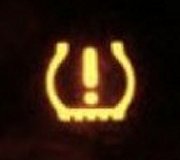Saturday, July 17th, 2010 AT 6:15 PM
97 camry has 94000, with vibration issue, makes whump whump whump noise from 50 to 70 mph, especially @ 65, but smooths out @ 75 mph. New tires, balance, alignment. Still does it. Cvs feel tight. Can't feel it in the steering wheel or the shifter when it happens. Put it in neutral and coast, still does it. The transmission seems ok, fluid ok color and doesn't smell burnt, not low, shifts great. Put the front end on blocks, revved up to 60-70 mph, didn't make the whump, whump noise, but we could feel some vibration. Transmission guy found loose axle on 1 side, inside the transaxle and fixed that but no change. 2 mechanics can't find it. Sad thing because the car is great other than this.


